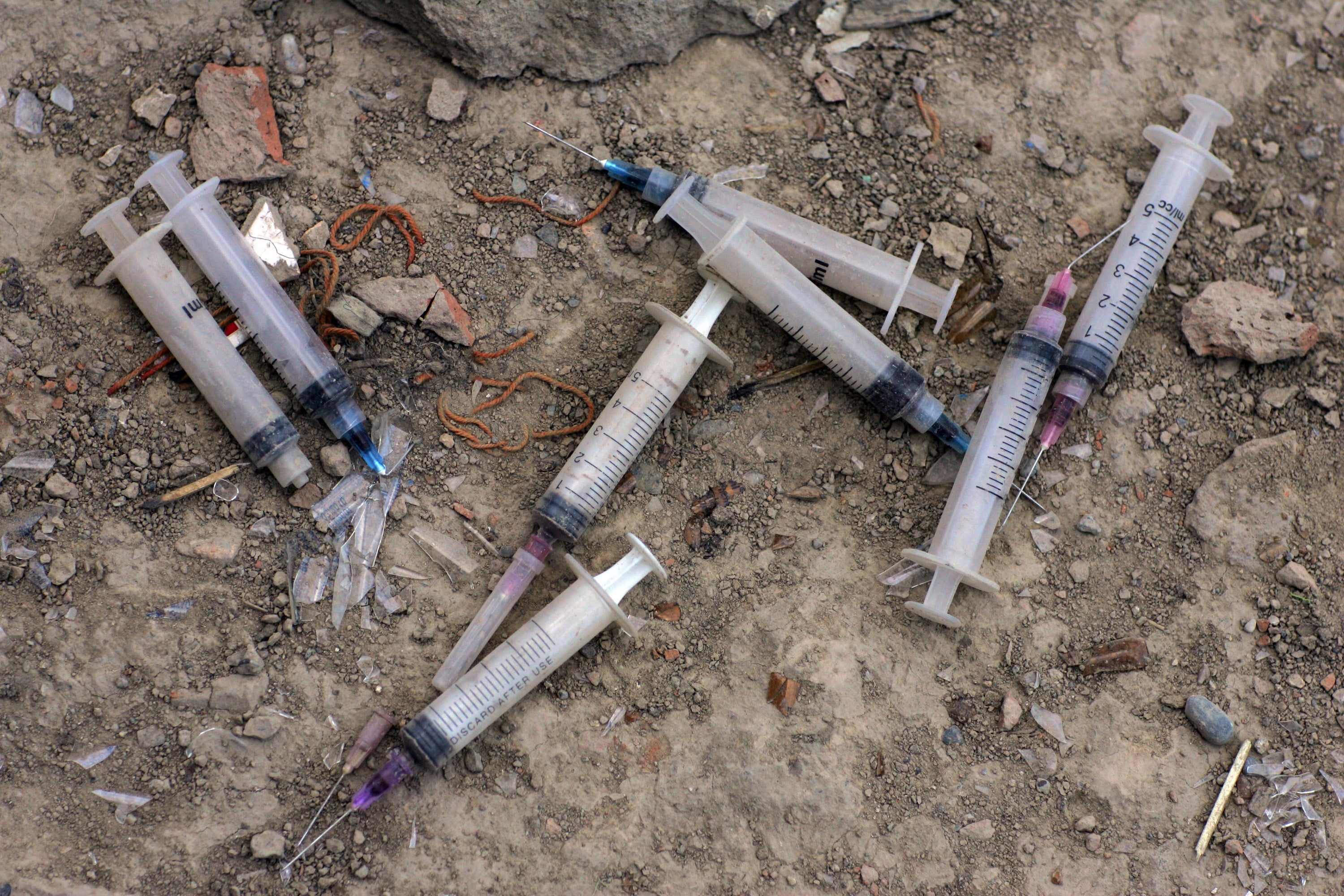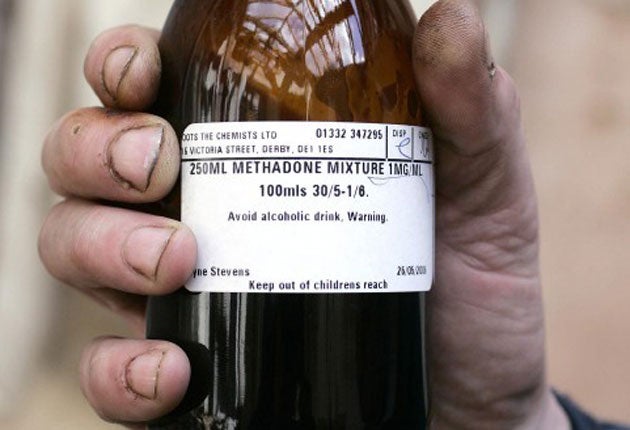Prescribing heroin to addicts could be cheaper and more effective than methadone, says expert
Professor Martin Schechter says the drug should be used after traditional treatment fails

Your support helps us to tell the story
From reproductive rights to climate change to Big Tech, The Independent is on the ground when the story is developing. Whether it's investigating the financials of Elon Musk's pro-Trump PAC or producing our latest documentary, 'The A Word', which shines a light on the American women fighting for reproductive rights, we know how important it is to parse out the facts from the messaging.
At such a critical moment in US history, we need reporters on the ground. Your donation allows us to keep sending journalists to speak to both sides of the story.
The Independent is trusted by Americans across the entire political spectrum. And unlike many other quality news outlets, we choose not to lock Americans out of our reporting and analysis with paywalls. We believe quality journalism should be available to everyone, paid for by those who can afford it.
Your support makes all the difference.Prescribing heroin to addicts trying to beat their addiction could be cheaper and more effective than replacement therapy, an expert has claimed.
Methadone, a synthetic opiate, is commonly used to wean people off the drug, while other patients are put through detoxification and abstinence programmes.
But Professor Martin Schechter, from the University of British Columbia in Vancouver, Canada, said there was “overwhelming” evidence that these standard treatments do not work for a section of addicts.

Writing in the British Medical Journal (BMJ), he said: “Illicit heroin is a dangerous street drug that leads to substantial morbidity and mortality. Because its dose and purity are unknown, users will face the risk of overdose and death.”
Addicts will be in and out of hospitals and prisons and “cost society a fortune while suffering immeasurably because they have an illness that society does not like”, he added.
Heroin’s status as one of the most tightly controlled drugs in the world means possession carries harsh penalties in many countries – up to seven years imprisonment in the UK – and addicts using it illicitly engage in unsafe practices like sharing HIV-infected needles.
Professor Schechter noted the findings of six randomised controlled trials that found heroin-assisted treatment to be more effective for patients who had found standard therapy ineffective.

He also highlighted a recent review concluding that medically supervised use of the drug can improve compliance while reducing illicit use, crime, imprisonment and the likelihood of death.
Professor Schechter claimed that although the use of diamorphine - pure heroin - can be up to four times more expensive than methadone, it works out cheaper in the long term because of associated costs and the duration of the treatment.
A trial in the Netherlands showed that heroin assisted therapy made overall savings of around €13,000 (£9,530) per patient every year, when compared to methadone, and a group of British researchers also found that heroin-assisted therapy was more cost effective than oral methadone.
“The argument that therapeutic heroin is too expensive is false,” Professor Schechter wrote.
“Treatments like this represent the holy grail of medical research seeking to support a sustainable health system: they achieve better outcomes at lower overall cost.”

He would see those savings put into addiction prevention programmes and other associated schemes.
Professor Schechter argued that conventional treatment should still be the first port of call for addicts but heroin should be prescribed, safely by doctors at specialised clinics, if that does not work.
The NHS currently prescribes methadone and buprenorphine to heroin addicts to minimise withdrawal symptoms while they undergo counselling and other therapy.
Once patients are “stabilised”, they are offered the choice of coming off substitute drugs completely and detoxing either at home or in a rehabilitation centre.
The argument for prescribing heroin has been made numerous times in recent years and while serving as Justice Secretary in 2009, Jack Straw called for its use to treat the “most problematic” addicts.
Join our commenting forum
Join thought-provoking conversations, follow other Independent readers and see their replies
Comments